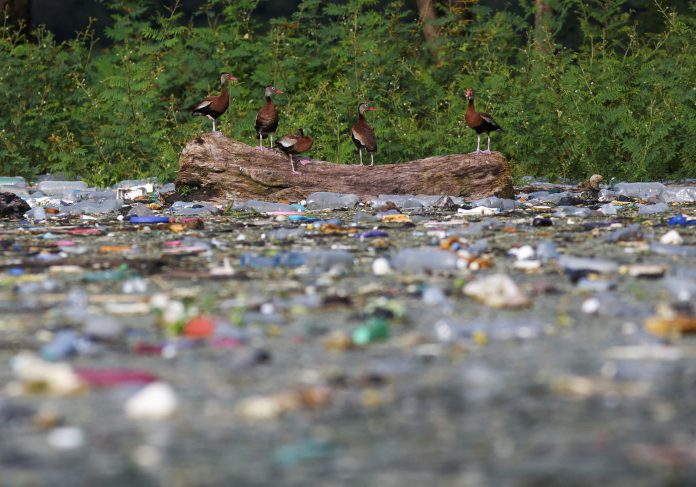Negotiators from 175 countries are meeting in Canada on Tuesday to hammer out a binding global treaty to end plastic pollution, with many points of contention to be resolved five months after the last round of talks in Kenya.
According to the United Nations Environment Programme, people dump the equivalent of 2,000 rubbish trucks full of plastic into the world’s oceans, rivers and lakes every day. People are increasingly breathing, eating and drinking tiny particles of plastic.
Negotiators need to streamline the existing draft treaty and define its scope: whether it will focus on human health and the environment, limit the actual production of plastic, limit certain chemicals used in plastic, or any combination of the above. These are the elements that the self-described “coalition with high ambitions” wants to see.
Alternatively, the agreement could have a more limited scope and focus on plastic waste and increased recycling, as some plastic producers and oil and gas exporters want.
In March 2022, 175 countries agreed to conclude the first legally binding treaty on plastic pollution, including in the oceans, by the end of 2024. This is an extremely short timeframe for negotiations, designed to match the urgency of the problem. This is the fourth of five meetings of the UN Intergovernmental Negotiating Committee on Plastic.
According to Inger Andersen, executive director of UNEP, it’s a once-in-a-lifetime opportunity to fix what everyone agrees needs to be fixed because plastic in the environment is not natural. She said in an interview:
People globally are disgusted by what they see. The straw in the turtle’s nose, the whale full of fishing gear. I mean, this is not the world we want to be in.
Andersen rejected the idea that this is an “anti-plastic” process because plastic has many uses that help the world. But she said the treaty should eliminate unnecessary single-use and short-lived plastic products that are often buried, burned or thrown away.
Plastic production continues to grow worldwide and is projected to double or triple by 2050 if nothing changes.
Researchers at the federal Lawrence Berkeley National Laboratory last week released a report on the climate impact. According to their findings, greenhouse gas emissions from manufacturing would more than double under a conservative increase in production. This could account for 21 to 26 per cent of the remaining so-called global carbon budget, which is the amount of carbon emissions that can still be produced between now and 2050 while remaining at or below the international target of limiting warming to 1.5 degrees Celsius since the 1850s.
Most plastic is made from fossil fuels. UN climate negotiators, known as COP28, concluded last December that the world must divest from planet-warming fossil fuels and triple its use of renewable energy.
Countries, including France, are calling for the creation of intersessional working groups to address outstanding issues, including: determining which plastics are problematic and avoidable, which polymers and substances should be banned, and tougher eco-design criteria. Several North American organisations have recently called on President Joe Biden to be more proactive on this issue.
